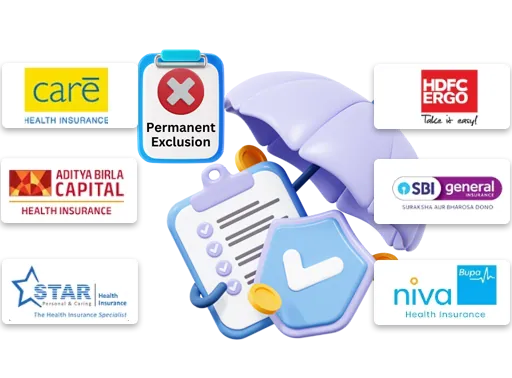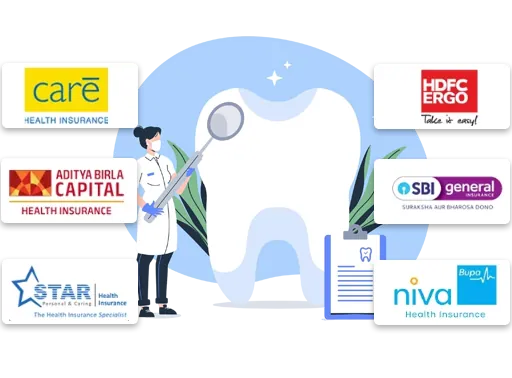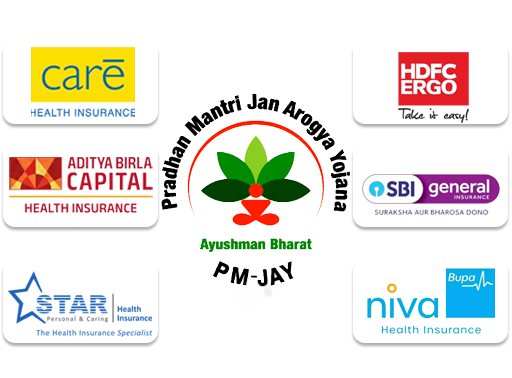Grace Period in Health Insurance




Simran is an insurance expert with more than 4 years of experience in the industry. An expert with previous experience in BFSI, Ed-tech, and insurance, she proactively helps her readers stay on par with all the latest Insurance industry developments.
Reviewed By:

Raj Kumar has more than a decade of experience in driving product knowledge and sales in the health insurance sector. His data-focused approach towards business planning, manpower management, and strategic decision-making has elevated insurance awareness within and beyond our organisation.
Updated on Jun 25, 2025 4 min read
Grace Period in Health Insurance
Health insurance has become an essential aspect of their financial plan for everyone in today's time. The main reason is the rise in healthcare expenditures, which can be difficult to manage with your savings. While health insurance is a set of multiple benefits and advantages; it also offers some of the great features that are quite helpful for the policyholders in ensuring their continuous protection and one such feature is Grace Period.
Let's discuss its working and the other important points.
What is the Grace Period in Health Insurance?
Grace period in health insurancerefers to the time or number of days during which an insured has to pay the premium for its health insurance policy at the time of renewal. Even if the due date has passed. Usually, Health Insurance Companies provide a 15-day grace period beyond the premium due date for the insured to pay the renewal payment. However, some insurance providers offer a 30-day grace period for the same. If the policyholder is unable to pay the premium within the grace period, the insurance company has the authority to reject the health insurance renewal application, even if the insured wants to pay the premium after the grace period. Moreover, during the grace period the insured person doesn't get any coverage benefits. Also, the grace period will start over for some specified illnesses listed in the policy document, therefore it is important to pay your health insurance premium on time.
How Does the Grace Period of Health Insurance Work?
It is important to pay all your outstanding premiums during the grace period for the continuity of your health coverage. The insurance company offers a grace period so you don't miss the premium payment even if you forget the due date. For a better understanding of the grace period inhealth insurance, read the below-mentioned example:Suraj has a health insurance plan that expires on 10 Feb 2022, and he missed the due date to pay the premium of its health insurance plan. Then, the insurance company provides a 15 days grace period to pay the premium. So, the extended due date for Suraj to pay the health insurance premium will be 25 Feb 2022.
Note: If the premium is not paid during the grace period then any claims filed within the grace period will be rejected by the insurer. Also, once the policy lapse, all NCB and waiting periods for pre-existing diseases will become invalid.
How to Renew/Revive Lapsed Health Insurance Policy on Time?
Policyholders have agrace period for the renewal of health insurancein which policyholders need to pay the premium along with some interest and penalties within the stipulated time. You can do it via i.e. online and offline. Following are the steps to renew your health insurance plan:
Step 1:Visit the official website of the insurer.
Step 2:Log in to access your account.
Step 3:Choose the payment option to pay the premium.
Step 4:Make the payment of the policy premium.
And if you want to revive your lapsed health insurance policy, there are two ways to do it i.e. online and offline. Below-mentioned are the steps to revive the lapsed/expired health insurance policy:
Step 1:Visit the official website of the insurer.
Step 2:Log in to access your account.
Step 3:Choose the payment option to pay the premium.
Step 4:Make the payment of the policy premium.
Step 5:The insurance company will send the policy document to your registered email address.
Disadvantages of Not Making the Premium Payment on Time
There are several disadvantages of not paying the health insurance premiums on time. Here is the list of some disadvantages that can explain to you the importance of a grace period in Health Insurance:
- No Coverage Benefits:If the policyholder does not pay the health insurance premiums then he/she won't be able to use any of the policy's benefits. And if you raise a claim during this period, it will be rejected.
- Loss of Waiting period:Waiting periods for pre-existing disease and critical illness are common among health insurance plans offered by health insurance companies in India. If you don't pay your premium on time, you'll have to complete the waiting period again according to the policy's terms and conditions.
- Loss of No Claim Bonus (NCB):Health Insurance companies offer bonuses for not raising any claims during the policy period. This bonus is called theNo Claim Bonus.By not paying the policy premium on time, you end up losing the existing No Claim Bonus.
- Lapse of Medical Check-Ups:Health Insurance companies offer medical check-ups after a certain waiting period. However, if you do not pay your premium on time, you will lose your medical checkup benefits and have to wait until the insurer offers it again.
- Renewing a Lapsed Health Insurance is Expensive:Once the policy lapses, you will need to buy a new health insurance policy. By purchasing a new policy, not only you will lose the NCB that you may have earned but the premium of the new health policy will be higher.
- Loss of Portability:Policyholders can change their existing health insurance policy from the existing insurer to another. However, if you do not pay your premium on time and policy lapses, you will lose the portability benefits.
How Grace Period Affects Health Insurance Premium?
Some insurance companies may charge you a late fee if you miss your premium payment due date and decide to pay it during the grace period. If you consistently miss your health insurance premium due dates, insurance companies may charge you a higher premium at the time of renewal of the policy.
How Can Grace Periods Affect Claims?
Health insurance companies provide policyholders a grace period for the premium payment to ensure that coverage remains intact even if the premium is not paid on time. Policyholders can still file a claim if they have a medical emergency during this time. However, if the renewal date is missed, the insurer may refuse to cover you because of the non-payment of your premiums. Even if you pay the premium on the very next day, you will not be eligible for any coverage benefits.
Difference between Grace Period and Waiting Period
The grace period and waiting period in health insurance are a little different from each other. To understand the difference, refer to the table below:
| Grace Period | Waiting Period |
| Applicable to all health insurance coverage | Applicable only in specific conditions like critical illness, maternity, pre-existing illnesses, etc. |
| A short period of 24 hours to 30 days | A longer period for up to 3 to 4 years. It varies from one insurance company to another. |
| Late fee or penalty may be applicable | There is no penalty or a late fee applied |
| The insurance company might reject the claims for all types of treatment | Claims are approved for treatment other than the specific conditions like maternity, pre-existing conditions, etc. |
Conclusion
Not renewing your health policy or late payment of your health insurance premium can cause you inconvenience at the time of medical emergencies. If you have any pre-existing condition, it will be very difficult to get a new health plan, and you will have to start the waiting period all over again.
So, you must pay your health insurance policy premium on time to avail continuous coverage benefits. Even if there is a grace period, do not delay the payment unless there is an emergency.
Consult for Personalized Insurance Advice

But how does it work?
Schedule a call with India’s number 1 trusted advisor with a 4.5+ rating on Google. We are not your average insurance agents. Our advisors are experts in their insurance knowledge and will give you the right information at the right time. The service is free of cost! Don’t worry, we won’t spam as we value your time.
Health Insurer Network Hospitals
Grace Period in Health Insurance: FAQs
1. How long does the grace period for insurance last?
The grace period usually lasts 24 hours to 30 days to renew your health insurance policy.
2. What if I do not renew my policy even during the grace period?
Not renewing your policy even during the grace period will lapse your health plan and you will have to buy a new one.
3. Is the waiting period same as the grace period?
No, the waiting period refers to the period you have to wait before making an insurance claim. The waiting period is usually applied to pre-existing health concerns. Whereas, grace period refers to the extended time that you get to renew your health insurance plan.
4. Is 30 day grace period compulsory for all health insurance policies?
The grace period allowed depends from insurer to insurer and the policy. Usually, the grace lies between 24 hours to 30 days.
5. Do health insurance policies come without a waiting period also?
No, the insurance regulator of India has made it mandatory for the insurers to provide a maximum 30 days waiting period for the policyholders to renew their policies.
Health Insurance Companies
Know More About Health Insurance Companies
Share your Valuable Feedback
4.4
Rated by 2633 customers
Was the Information Helpful?
Select Your Rating
We would like to hear from you
Let us know about your experience or any feedback that might help us serve you better in future.


Written By: Simran Kaur Vij
Simran is an insurance expert with more than 4 years of experience in the industry. An expert with previous experience in BFSI, Ed-tech, and insurance, she proactively helps her readers stay on par with all the latest Insurance industry developments.






















Do you have any thoughts you’d like to share?